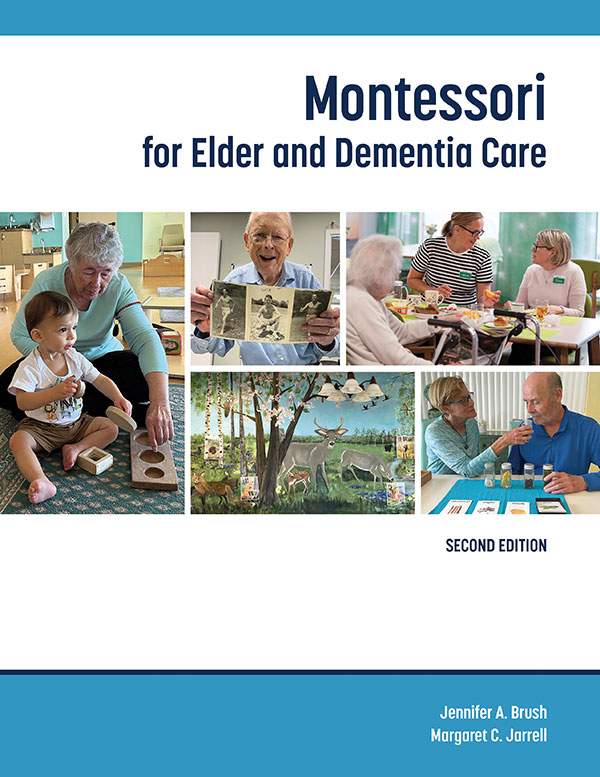Exceptional Memory Care Charlotte: Approaches for Engaging and Sustaining Residents
Exceptional Memory Care Charlotte: Approaches for Engaging and Sustaining Residents
Blog Article
Efficient Mental Deterioration Treatment Strategies for a Better Lifestyle
In the realm of dementia treatment, the application of effective techniques is essential for boosting the high quality of life for both people affected by the condition and their caregivers. Recognizing the distinctive phases of dementia permits for tailored treatments that resolve the developing requirements of patients-- from promoting cognitive interaction in the early phases to making sure self-respect in late-stage care.
Understanding Dementia Stages

In the onset, individuals might experience mild memory loss and problem with familiar tasks. Care strategies must concentrate on maintaining self-reliance and supplying cognitive excitement. The middle stage is characterized by enhanced confusion, difficulty identifying loved ones, and damaged judgment. Throughout this phase, caregivers should implement structured regimens and ensure a safe environment. Ultimately, in the late phase, individuals may lose the capacity to communicate and require aid with daily tasks. Below, caring care is necessary, emphasizing comfort and self-respect.
Recognizing these phases permits caregivers to adjust their techniques and offer support that straightens with the person's current demands, inevitably facilitating much better management of the condition and enhancing the general caregiving experience. Recognizing dementia stages is for that reason a fundamental aspect of efficient dementia care.
Interaction Methods
Reliable interaction is a crucial element of dementia care, specifically as the illness proceeds through its different stages. As cognitive capabilities decrease, it becomes important to adjust interaction techniques to fulfill the requirements of people with dementia. Making use of clear, easy language is crucial; caretakers ought to avoid intricate sentences and jargon, opting rather for uncomplicated, concise expressions.
Non-verbal communication plays a similarly substantial function. Facial expressions, gestures, and tone of voice can convey warmth and understanding, commonly boosting spoken messages. Keeping eye contact and an open pose cultivates a sense of connection and safety and security, urging people with dementia to engage more totally in discussions.
It is additionally advantageous to be client and allow adequate time for feedbacks. Individuals might need additional time to process info and develop their thoughts. Repeating or putting in other words inquiries might be necessary if comprehension shows up doing not have.
Finally, focusing on the person's rate of interests and individual history can help with much more purposeful communications. Taking part in familiar subjects can stimulate positive memories and feelings, further enhancing the communication experience (memory care charlotte). By using these techniques, caretakers can considerably improve the high quality of interactions, promoting dignity and respect for individuals dealing with dementia
Developing a Safe Environment
Developing a secure environment for individuals with dementia is important to advertising their wellness and independence. A well-designed space can significantly reduce the dangers of crashes and enhance the quality of life for those influenced by this condition.
Lights plays an important role too; using natural light wherever feasible and including night lights can aid individuals browse their surroundings safely. Furthermore, classifying areas and important items can aid memory and orientation, reducing confusion and anxiousness.
It is also important to develop a familiar setting by individualizing the area with photos or valued products, which can evoke positive memories and a sense of belonging.
Integrating furnishings that is both comfy and functional contributes to an review encouraging atmosphere, enabling individuals to participate in daily activities with ease. Ultimately, a safe atmosphere not just safeguards against physical threats but also cultivates a feeling of safety, which is crucial for the emotional wellness of those dealing with dementia.
Involving Activities and Regimens
Engaging activities and structured routines are important parts in the care of people with dementia, as they advertise cognitive feature, emotional More about the author security, and social interaction. These tasks need to be tailored to the person's interests, capabilities, and stage of cognitive decrease. memory care facility charlotte. Easy, repeated jobs such as horticulture, arts and crafts, or food preparation can offer significant interaction, allowing people to utilize their abilities while promoting a feeling of accomplishment
Developing an everyday routine assists create a foreseeable setting, which can decrease stress and anxiety and confusion. This framework can consist of marked times for meals, activities, and rest, making sure a balanced strategy to every day life. Incorporating social interactions right into these regimens, such as group tasks or seeing family, additional enhances psychological wellness and fights feelings of seclusion.
Furthermore, physical tasks, such as walking or dancing, not just promote physical health however likewise boost psychological interaction. Motivating participation in area events or assistance teams can provide extra possibilities for socialization. On the whole, the combination of structured routines and interesting tasks is necessary in improving the lifestyle for individuals with dementia, fostering independence and self-respect while addressing their special requirements.
Sustaining Caretaker Well-Being
Looking after individuals with dementia can be a requiring and emotionally tiring experience, making it essential to focus on the well-being of caregivers. Caregivers typically encounter high levels of anxiety, anxiety, and physical fatigue, which can lead to fatigue otherwise resolved suitably. To support their wellness, it is vital to apply a multifaceted strategy.
First, supplying caregivers with accessibility to education and sources can equip them with techniques to take care of day-to-day challenges. Support system, both in-person and online, provide a system for sharing experiences, fostering a feeling of community, and reducing sensations of seclusion. Additionally, respite care services make it possible for caregivers to take required breaks, enabling them time to recharge and go to to their own health needs.
Additionally, encouraging caregivers to participate in self-care practices-- such as routine exercise, healthy and balanced eating, and mindfulness-- can substantially enhance their durability. Promoting open interaction concerning their feelings and challenges with relative or experts likewise helps reduce psychological problems.
Verdict
Finally, effective mental deterioration care techniques incorporate a comprehensive understanding of the disease's stages, the application of clear communication methods, the facility of a secure atmosphere, and the promotion of engaging tasks and structured routines. Additionally, focusing on the well-being of caregivers is informative post important to sustaining quality treatment. By incorporating these approaches, the total high quality of life for individuals with mental deterioration can be substantially enhanced, fostering an encouraging atmosphere that advertises self-respect and emotional well-being.
In the world of dementia care, the implementation of reliable techniques is vital for improving the top quality of life for both individuals impacted by the disease and their caretakers. By employing these techniques, caretakers can substantially improve the top quality of interactions, promoting dignity and regard for people living with mental deterioration.

Caring for people with mental deterioration can be a demanding and mentally taxing experience, making it critical to prioritize the wellness of caregivers.
Report this page